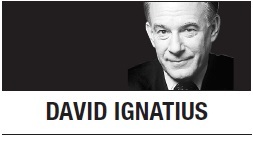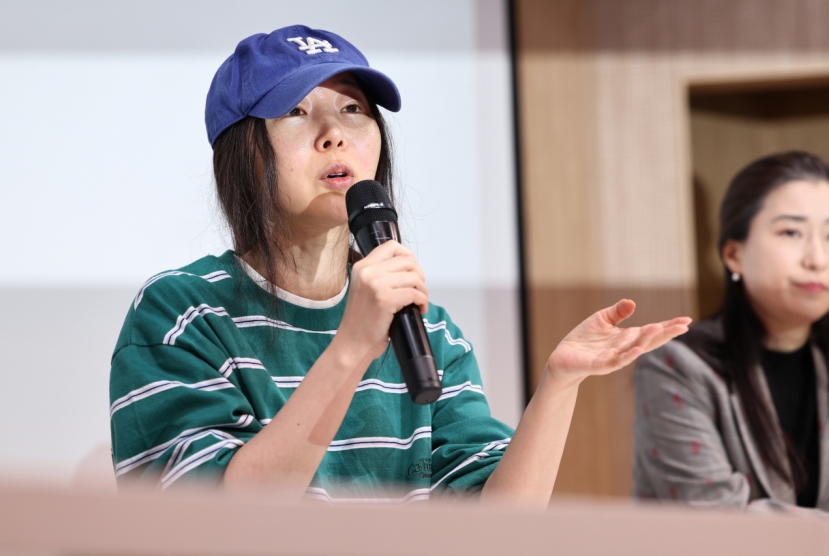[David Ignatius] ‘Back channels’ are protocol for a president -- not a president-elect
By Korea HeraldPublished : May 31, 2017 - 17:46
 “Back channels” have been used by every modern president, from John F. Kennedy to Barack Obama. If that’s so, what’s the problem with the pre-inauguration contacts between White House adviser Jared Kushner and two Russian intermediaries?
“Back channels” have been used by every modern president, from John F. Kennedy to Barack Obama. If that’s so, what’s the problem with the pre-inauguration contacts between White House adviser Jared Kushner and two Russian intermediaries?It’s a fair question. But that doesn’t mean that the right answer is a reflexive approval of Kushner’s contacts, as offered Sunday by Homeland Security Secretary John Kelly, who said of such offline communication, “It’s both normal, in my opinion, and acceptable.”
The devil here, as in most things, is in the details. Most analysts agree that it’s appropriate for presidents and their senior aides to use secret contacts to advance US foreign policy goals. And it’s fairly routine for incoming administrations to have get-acquainted talks with foreign governments, too. Such back channels can add stability and predictability in foreign relations. What’s not OK is when an incoming administration seeks to undermine the policies of the incumbent. We have “one president at a time.” That’s not just a political truism but a matter of law, enunciated back in 1799 in the Logan Act, which prohibits private meddling with official policy during a dispute. The fact that this statute has never been enforced criminally doesn’t blunt its importance.
And it’s not OK, either, for any citizen, even the son-in-law of the president-elect, to propose contacts that would use the communications tools of a foreign intelligence service to evade detection. As Rep. Adam Schiff of California said Sunday, “You have to ask, well, who are they hiding the conversation from?”
The secret Kushner contacts with Russian Ambassador Sergey Kislyak and Kremlin-friendly banker Sergey Gorkov raise similar questions to Michael Flynn’s contacts with Kislyak. Flynn was fired as national security adviser in February after it was revealed that he had misled Vice President Mike Pence and the public about whether, in a Dec. 29 conversation with Kislyak, he discussed easing anti-Russia sanctions after Trump’s inauguration.
The reason that Flynn’s conversations were “problematic,” in the words of former acting Attorney General Sally Yates, was that they might have undermined the penalties the Obama administration had imposed that very day against Russia for hacking the 2016 presidential election.
Did any of Kushner’s conversations have a similar effect of undermining existing policy? That’s one of the questions investigators will explore. Published reports have said that Kushner wanted to discuss better coordination with Russia of US policy toward Syria. Did those contacts help frustrate the efforts of then-Secretary of State John Kerry to reach a peaceful transition in Syria? Again, a question worth asking.
One difference between the Kushner and Flynn cases is that when press reports surfaced about Kushner’s Russia contacts, he doesn’t appear to have provided misleading information, as Flynn allegedly did to Pence and the public.
The basics of the Kushner case were reported in late March, by The New York Times and in my column. I wrote then, “Kushner’s Russia problem was that he met after the election not just with ... Kislyak but also with ... Gorkov, who was prepared to act as an intermediary to President Vladimir Putin.” I noted that Kushner had agreed to testify to the Senate Intelligence Committee about the meetings.
I speculated that when Kushner testified, he would “tell the Senate that he wanted to explore opening a discreet channel to Putin, similar to those he established with numerous other global leaders during the transition. But after the secretary of state nomination went to Rex Tillerson, a genuine friend of Putin, Kushner apparently concluded Trump didn’t need any such back channel.” Kushner still hasn’t testified, and we don’t yet know the whole story, but the basic template has been evident for two months.
The reason back channels sometimes make sense is that it’s hard to explore options under a public spotlight. The Soviets sent a spy to meet Robert Kennedy before the 1961 inauguration to get a sense of JFK, according to historian Tim Naftali in Slate. President Kennedy used his brother for discreet contacts with Soviet Ambassador Anatoly Dobrynin during the Cuban missile crisis, partly because JFK didn’t want his advisers to know what trade-offs he was considering. President Nixon and his top adviser Henry Kissinger used back channels so often and widely that they became habitual.
The Obama administration continued this pattern: Obama explored options with Iran through an Omani intermediary and used a similar secret channel to begin discussions with Cuba about the normalization of relations.
These crisis contacts are powerful, but potentially destabilizing. That’s why they’re left, by law, to official representatives of the US government.
By David Ignatius
David Ignatius’ email address is davidignatius@washpost.com. -- Ed.
(Washington Post Writers Group)
-
Articles by Korea Herald



![[Herald Interview] 'Amid aging population, Korea to invite more young professionals from overseas'](http://res.heraldm.com/phpwas/restmb_idxmake.php?idx=644&simg=/content/image/2024/04/24/20240424050844_0.jpg&u=20240424200058)
















